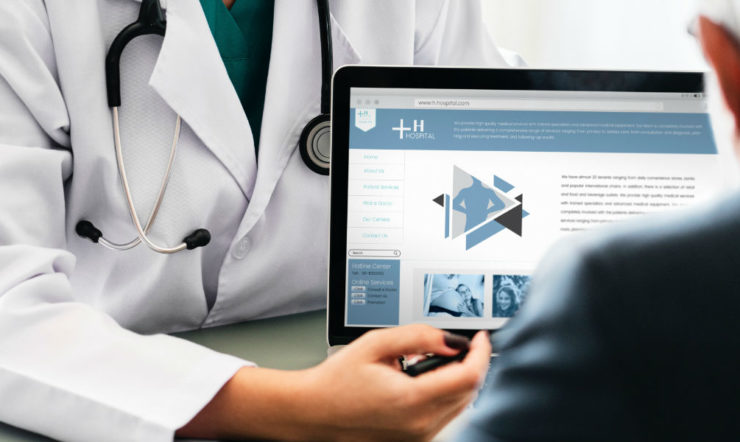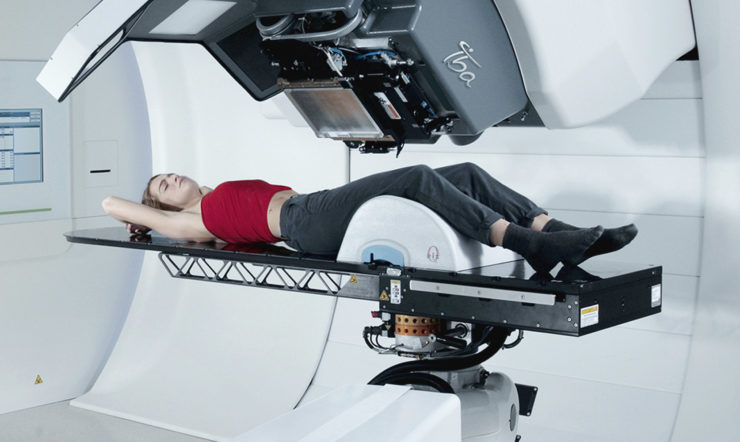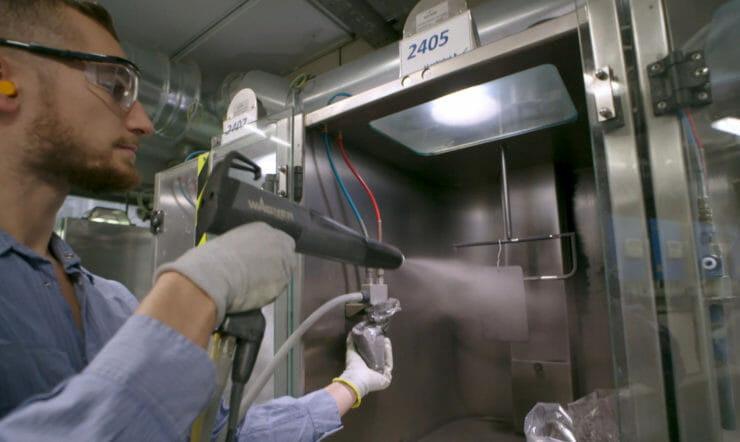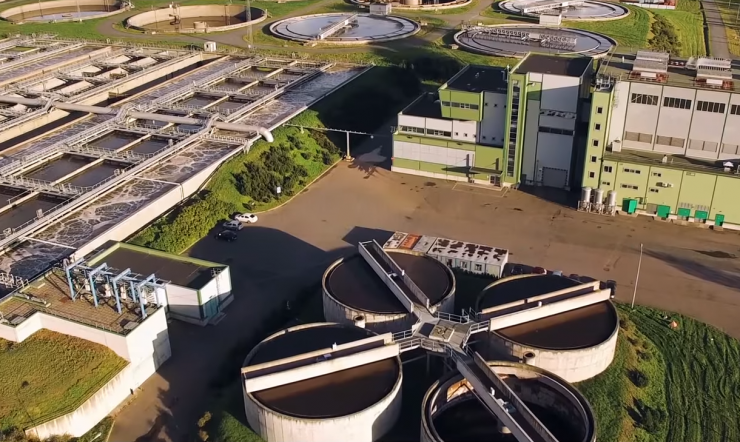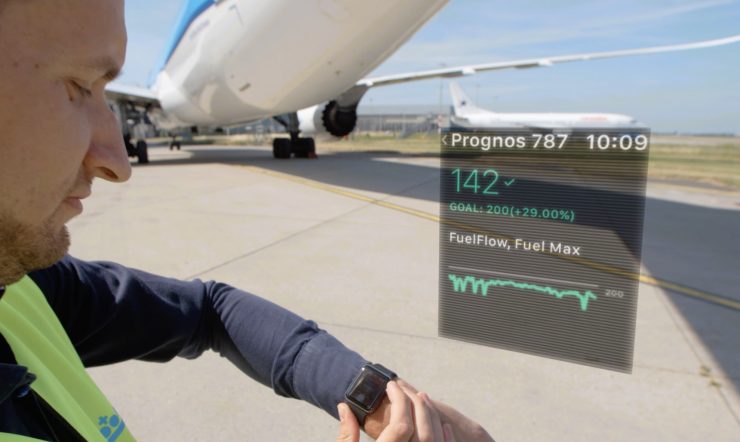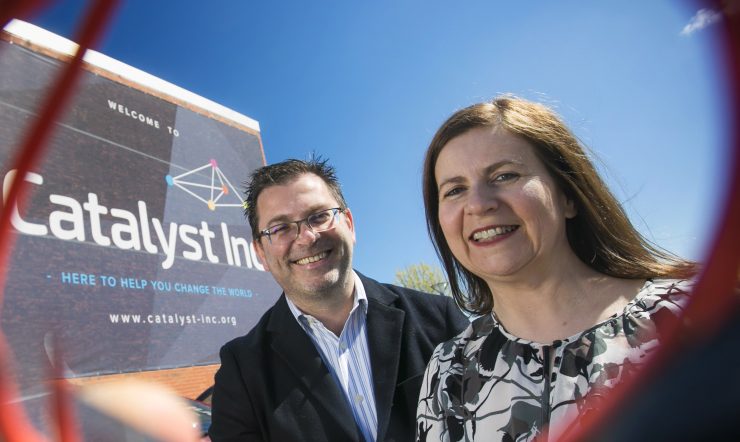A new prototype AI diagnostic test for pre-eclampsia developed by a multi-disciplinary Irish team will hopefully save thousands of lives around the world.
Preeclampsia affects 1 in 10 pregnancies and causes the deaths of at least 50,000 mothers and 500,000 babies worldwide every year. It is a serious pregnancy complication and diagnosis remains a significant challenge.
Using cloud-based technology, an Irish team has now developed a prototype AI-based machine learning tool that has shown great promise in identifying pre-eclampsia when it develops, and how severe it will become. Clinical teams will be able to use this tool – AI_PREMie – to hopefully make vital life-saving decisions for babies and mothers in real-time.
AI_PREMie is a high-quality rapid pre-eclampsia prototype test born of combined biomedical, clinical and machine learning know-how. It is utilising the SAS Viya analytics engine running on Microsoft Azure to help identify women with pre-eclampsia.
“Trying to identify pre-eclampsia biomarkers in a mother’s blood is like looking for a needle in a haystack”, says Prof Patricia Maguire, Professor of Biochemistry at University College Dublin. “The AI_PREMie algorithm will hopefully enable the clinical team to identify women with pre-eclampsia and how severe it might become, quickly and easily.”
Prof Maguire is leading on the AI_PREMie project with consultant haematologist Professor Fionnuala Ní Ainle and the manager of the University College Dublin AI for Healthcare Hub, Dr Paulina Szklanna. Their multidisciplinary team also involves data scientists from UCD as well as obstetricians and lab scientists from all Dublin maternity hospitals – National Maternity Hospital, the Rotunda Hospital and the Coombe Maternity Hospital.
Protecting and saving at-risk babies
The only ‘cure’ for pre-eclampsia is delivery of the baby, but that is often pre-term and premature babies can face many health challenges. At least 5 million babies worldwide are born prematurely every year due to pre-eclampsia and they account for a huge proportion of annual admissions to neonatal intensive care units.
AI_PREMie may also be useful towards predicting whether a woman will progress to severe pre-eclampsia, permitting a more accurate timing of delivery, and potentially allowing a baby to remain in utero for several more precious hours or days, impacting their survival chances and their long-term health.
“The decision can be a difficult one, healthcare professionals must decide: whether to deliver a baby due to concern over the mother’s safety, or to keep baby in-utero for as long as possible”
This is according to Assoc. Prof Jennifer Donnelly, of University College Dublin and Consultant Obstetrician, at the Rotunda Hospital, and a member of the AI_PREMie team.
A future easy-to-use real-time tool
AI_PREMie uses powerful machine-learning algorithms to combine unique biochemical signals with clinical information about patients, such as blood tests, demographics and medical opinion.
Not only will the test hopefully more accurately diagnose pre-eclampsia, but it may also predict the future severity of disease. That risk stratification means the medical team can time the baby’s delivery with more accuracy. The more time the team can give the baby in the womb, the better the baby’s chance of survival and optimal long-term neurodevelopment.
In the future, by performing their analysis using standard equipment in the hospital lab as well as in the cloud, the team believe that AI_PREMie will return an easily interpretable risk score within a few hours to aid clinical decision-making in real-time.
Set to revolutionise pregnancy care
The molecular biomarkers underlying AI_PREMie won the UCD NOVA Invention of the Year in 2021. The test is still in the research phase and is currently being piloted in three Dublin maternity hospitals, capturing 50% of all Irish births.
This tool will fill a long-standing gap in maternal healthcare, with the team behind it believing it will become part of pregnancy screening programmes globally within five years. The use of advanced cloud technology means that AI_PREMie will continually learn and evolve once it is implemented into widespread clinical practice.
This will reduce costs to the health service. In Ireland, for example, a pre-eclamptic pregnancy has typically cost the health service more than twice an uncomplicated pregnancy, with the national cost of pre-eclampsia estimated at €9.1m.
Survivors of preeclampsia have a lifelong increased risk of developing other chronic diseases, such as heart and vascular disease. In fact, preeclampsia is associated with a fourfold increased risk of developing kidney failure within 10 years after pregnancy. This risk is increased even further by having more than one preeclamptic pregnancy, a low-birthweight offspring, or a preterm delivery. Therefore, any improvement in clinical decision-making will have enormous preventative potential on the long-term health of the population and future healthcare resource requirements.
“The impact of AI_PREMie will be a game-changer in tackling pre-eclampsia. As a clinician, I cannot wait to use it as part of our care.”
So says Professor Mary Higgins, UCD School of Medicine, University College Dublin, who is a consultant obstetrician at the National Maternity Hospital, Dublin and Societal Champion on the AI_PREMie team.
Discover how to harness the power of machine learning with Microsoft Azure.


















